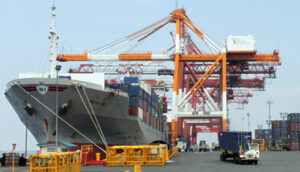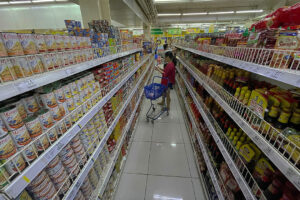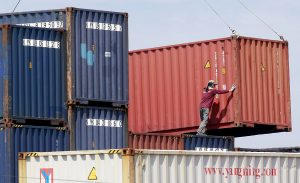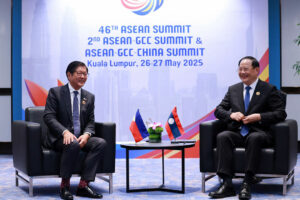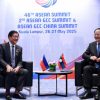SOME Philippine export orders are currently on hold as buyers await US tariff developments, the parent company of logistics firm Airspeed International Corp. said.
“The US tariffs have really affected the ASEAN region because the tariffs are not yet stabilized and we are still in the 90-day grace period,” Rosemarie P. Rafael, chairperson and president of AIC Group of Companies Holding Corp., told reporters on Tuesday.
“The buyers, as we see, are on hold. They really do not know if they are really going to push ahead with the orders, which affects our outbound trade,” she added.
In particular, she said that some orders of furniture from Cebu and garments have been on hold since March.
The US imposed reciprocal tariffs on most of its trading partners last month, with the Philippines assigned a 17% tariff.
The reciprocal tariffs have since been suspended, with most countries being charged 10% in the interim.
“There are not a lot of sailings going out, especially from China,” Ms. Rafael said.
She noted the emergence of “blank sailings,” where container ships skip scheduled stops because they do not expect to take on loads that would justify the journey.
“It is very difficult because they need to go through some transit points, and the US is basically raising charges on shipments of Chinese origin,” she said.
“These challenges can be overcome by looking at other markets. But the mood right now is to wait and see,” she added.
For the Philippines, she said other export destinations could be developed in the Middle East, Africa, and elsewhere in Asia.
“There are so many markets that have remained untapped because our major partner is really the US. So this is, to me, an opportunity… people can really look to build other markets,” she added.
She said the impact is much more severe in manufacturing exporters like Vietnam, Cambodia, and Thailand.
“What we are trying to look at is how to collaborate with the ASEAN region as the bloc is considered the world’s fifth-largest economy,” she said.
“Looking at what we have, it is a big market in itself,” she said, adding that the region “needs to work together and collaborate and not compete because our products can be complementary.”
She said the region is hoping for successful tariff negotiations with the US, “because it is not only China that is affected but also other countries that export manufactured goods.”
She said international movements, particularly for export shipments, have slowed by around 10%, while domestic movements remain strong.
Asked how much growth the company is expecting this year, she said that the domestic market is stable and is projected to register 5-10% growth. — Justine Irish D. Tabile







